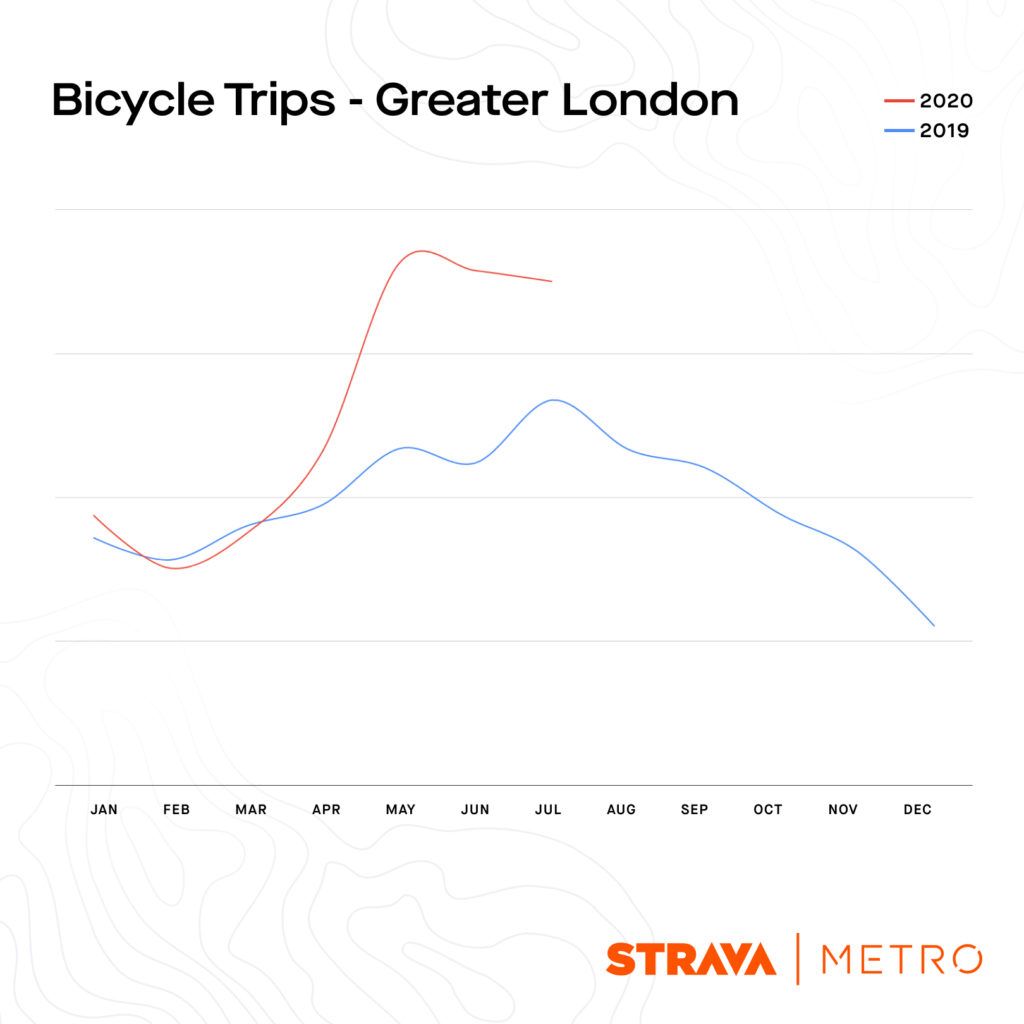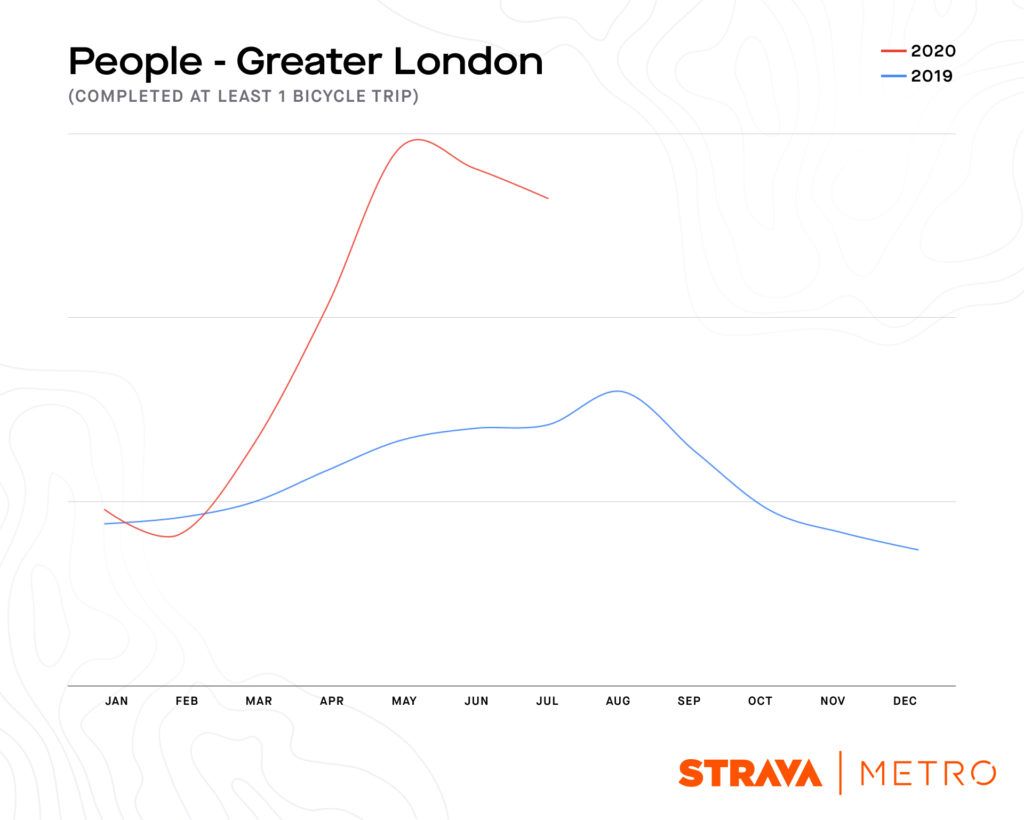Strava, the app-based excerise community with over 67 million users worldwide, today announced that Strava Metro, the largest active travel dataset on the planet, is now available and free of charge for urban planners, city governments and safe infrastructure advocates.
The Metro data reveals a major boom in the demand for active travel across the UK, due to changes in habits triggered by the coronavirus lockdown, with a 162.3% year-on-year overall increase in individuals cycling. This underlines a clear shift in the way people are travelling within cities around the country.
The analysis compares the overall number of people travelling by bike in May 2020 with the same period in 2019. Liverpool tops the list with a year-on-year rise of over 220% for people taking at least one trip by bike, followed by Manchester at 169% and Glasgow with a 146% increase. London ranks fifth with an overall rise of 119%.

Strava Metro has been built to help urban planners and city governments better understand these mobility patterns, identify opportunities for investment and evaluate the impact of infrastructure changes. Data-driven solutions give cities the opportunity to remap their landscape by putting people front and centre, and meet the demand the figures are revealing across the country.
There is an opportunity to turn this active travel trend seen across the UK from a lockdown spike into a long-term solution for the country, and create a more sustainable and healthier future.
According to the UK’s Office of National Statistic, the proportion of Britain’s working adults once again commuting to their place of work has steadily risen for the last two months, reaching 57% at the start of September. As an increasing number of people return to regular commuting, cycling trends from the lockdown period should be informing city planning, ensuring that active travel is supported and encouraged into the future.

Mark Gainey, co-founder and chairman of Strava, commented: “We always believed there were special ways in which the Strava community could contribute to the world at-large. Strava Metro was one such way. And given the growing need for bicycle and pedestrian infrastructure, we felt Strava Metro was too valuable and important not to make available to any organization attempting to make a difference in designing the cities of the future.”
Will Norman, London’s Walking and Cycling Commissioner, said: “Strava Metro has played an important part in improving how we understand and plan for cycling in London, and highlights the shift towards sustainable modes of transport. By making this data freely available, cities can use it to plan improvements that will enable more people to walk, cycle and stay active.”
Since Strava Metro’s inception in 2014, partners have paid an annual fee for access to the aggregated, de-identified datasets. Last year, Strava released Metroview, an updated, intuitive map-based web interface providing partners with easier access to insights. Now, by making Strava Metro free to organisations that share its mission to make cities better for cyclists and pedestrians, Strava hopes to power smarter and more sustainable design of the world’s cities and to give back to the communities that support millions of athletes around the world.
If you, or the organization you work for, believe in human-powered transport and think you can make an impact, apply to use Strava Metro for free now.





